Filter by
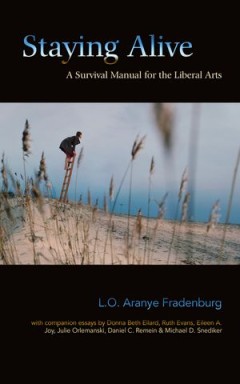
Staying Alive : a Survival Manual For The Liberal Arts
Staying Alive: A Survival Manual for the Liberal Arts fiercely defends the liberal arts in and from an age of neoliberal capital and techno-corporatization run amok, arguing that the public university’s purpose is not vocational training, but rather the cultivation of what Fradenburg calls “artfulness,” including the art of making knowledge. In addition to sustained critical and creative …
- Edition
- -
- ISBN/ISSN
- 9780615906508
- Collation
- 372 halaman
- Series Title
- -
- Call Number
- 700 FRA s
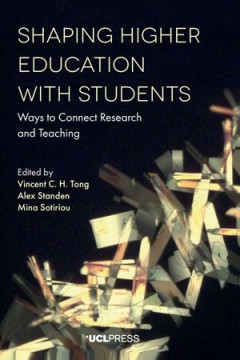
Shaping Higher Education with Students : Ways to connect Research and Teaching
Forging closer links between university research and teaching has become an important way to enhance the quality of higher education across the world. As student engagement takes centre stage in academic life, how can academics and university leaders engage with their students to connect research and teaching more effectively? In this highly accessible book, the contributors show how students a…
- Edition
- -
- ISBN/ISSN
- 9781787351110
- Collation
- 346 halaman
- Series Title
- -
- Call Number
- -
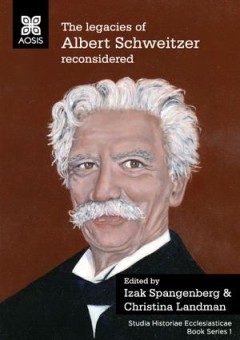
The legacies of Albert Schweitzer reconsidered
This book on the legacy of Albert Schweitzer contextualises this remarkable intellectualist, humanist, medicine-man, theologian and Nobel Prize winner. This collected work is aimed at specialists in the humanities, social sciences, education, and religious studies. The authors embrace philanthropic values to benefit Africa and the world at large. The publication engages with peers on the releva…
- Edition
- -
- ISBN/ISSN
- 9781928396031
- Collation
- -
- Series Title
- -
- Call Number
- 300 LEG
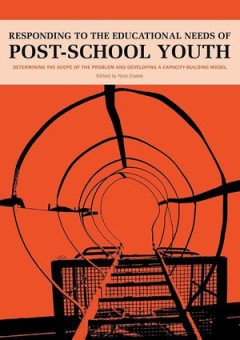
Responding to the Educational Needs of Post-School Youth : Determining the Sc…
he research reflected in this volume indicates that in South Africa there are almost three million youth between the ages of 18 and 24 who are not in education, training or employment – a situation which points not only to a grave wastage of talent, but also to the possibility of serious social disruption. The authors in this work paint a picture of the enormous reservoir of human talent whic…
- Edition
- -
- ISBN/ISSN
- 9781920355272
- Collation
- -
- Series Title
- -
- Call Number
- 370 RES
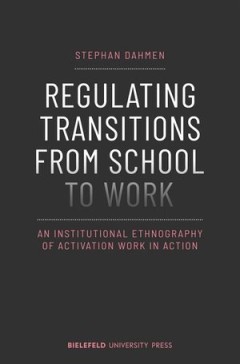
Regulating Transitions from School to Work : An Institutional Ethnography of …
How are activation programs for the young unemployed implemented? How do street-level bureaucrats deal with competing rationalities and demands for action? Transition policies increasingly aim at promoting self-regulation and constructing employable subjects. Stephan Dahmen explores the practical regulation of biographical transitions in activation programs for the young unemployed by focusing …
- Edition
- -
- ISBN/ISSN
- 9783839457061
- Collation
- -
- Series Title
- -
- Call Number
- 100 DAH r
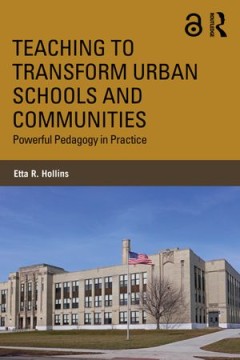
Teaching to Transform Urban Schools and Communities : Powerful Pedagogy in Pr…
For preservice candidates and novice teachers facing the challenges of feeling underprepared to teach in urban schools, this book offers a framework for conceptualizing, planning, and engaging in powerful teaching. Veteran teacher educator Etta Ruth Hollins builds on previous work to focus on transformative practices that emphasize the purpose and process of teaching. These practices are design…
- Edition
- -
- ISBN/ISSN
- 9781351863254
- Collation
- 162 halaman
- Series Title
- -
- Call Number
- 370 HOL t
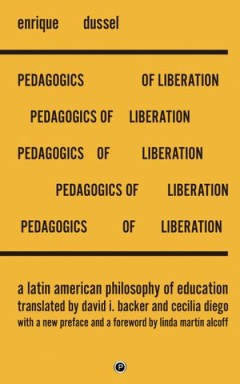
The Pedagogics of Liberation : A Latin American Philosophy of Education
"Enrique Dussel is considered one of the founding philosophers of liberation in the Latin American tradition, an influential arm of what is now called decoloniality. While he is astoundingly prolific, relatively few of his works can be found in English translation — and none of these focus specifically on education. Founding members of the Latin American Philosophy of Education Society David …
- Edition
- -
- ISBN/ISSN
- 9781950192274
- Collation
- 204 halaman
- Series Title
- -
- Call Number
- 370 DUS p
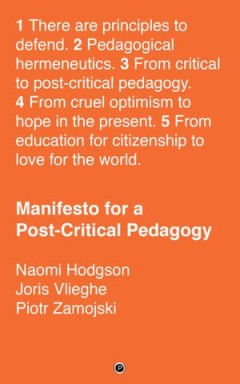
Manifesto for a Post-Critical Pedagogy
The belief in the transformative potential of education has long underpinned critical educational theory. But its concerns have also been largely political and economic, using education as the means to achieve a better – or ideal – future state: of equality and social justice. Our concern is not whether such a state can be realized. Rather, the belief in the transformative potential of educ…
- Edition
- -
- ISBN/ISSN
- 9781947447387
- Collation
- 110 halaman
- Series Title
- -
- Call Number
- 370 HOD m
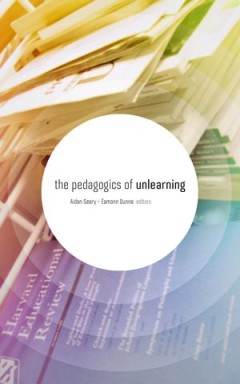
The Pedagogics of Unlearning
What does it mean to unlearn? Once we have learned something, is it ever possible to unlearn that something? If something is said to have been unlearned, does that mean that it is simply forgotten or does some residual force of learning, some perverse force, also resonate in ways that might help us to rethink traditional approaches to teaching and learning? Might we say that education today is …
- Edition
- -
- ISBN/ISSN
- 9780692722343
- Collation
- 194 halaman
- Series Title
- -
- Call Number
- 370 DUN p
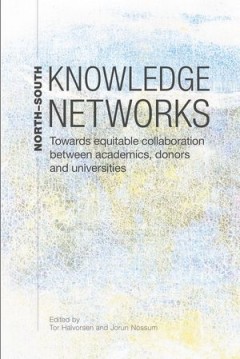
North-South Knowledge Networks : Towards Equitable Collaboration Between Acad…
Since the 1990s, internationalisation has become key for institutions wishing to secure funding for higher education and research. For the academic community, this strategic shift has had many consequences. Priorities have changed and been influenced by new ways of thinking about universities, and of measuring their impact in relation to each other and to their social goals. Debates are ongoing…
- Edition
- -
- ISBN/ISSN
- 9781928331308
- Collation
- -
- Series Title
- -
- Call Number
- 370 NOR
 Computer Science, Information & General Works
Computer Science, Information & General Works  Philosophy & Psychology
Philosophy & Psychology  Religion
Religion  Social Sciences
Social Sciences  Language
Language  Pure Science
Pure Science  Applied Sciences
Applied Sciences  Art & Recreation
Art & Recreation  Literature
Literature  History & Geography
History & Geography